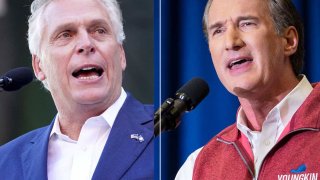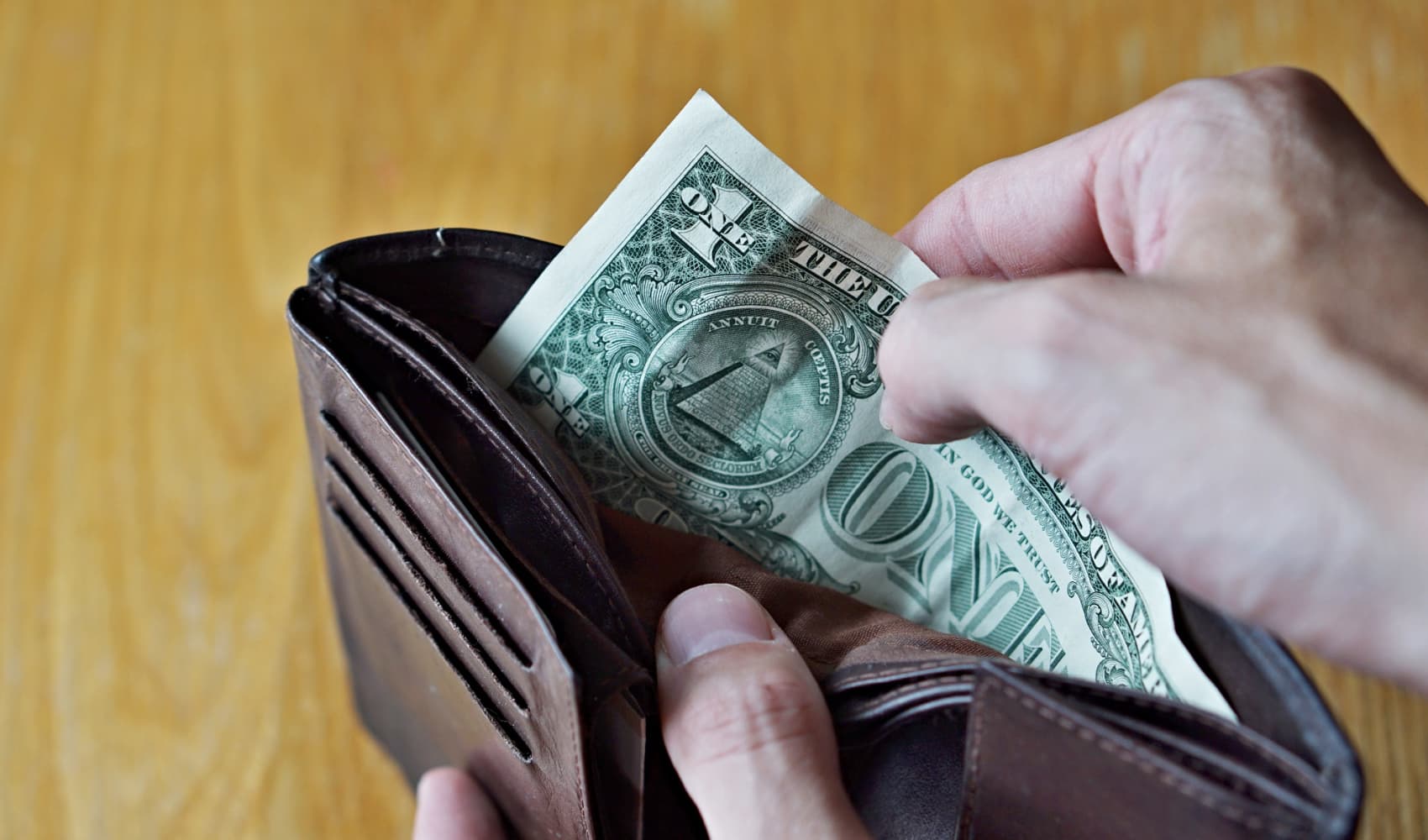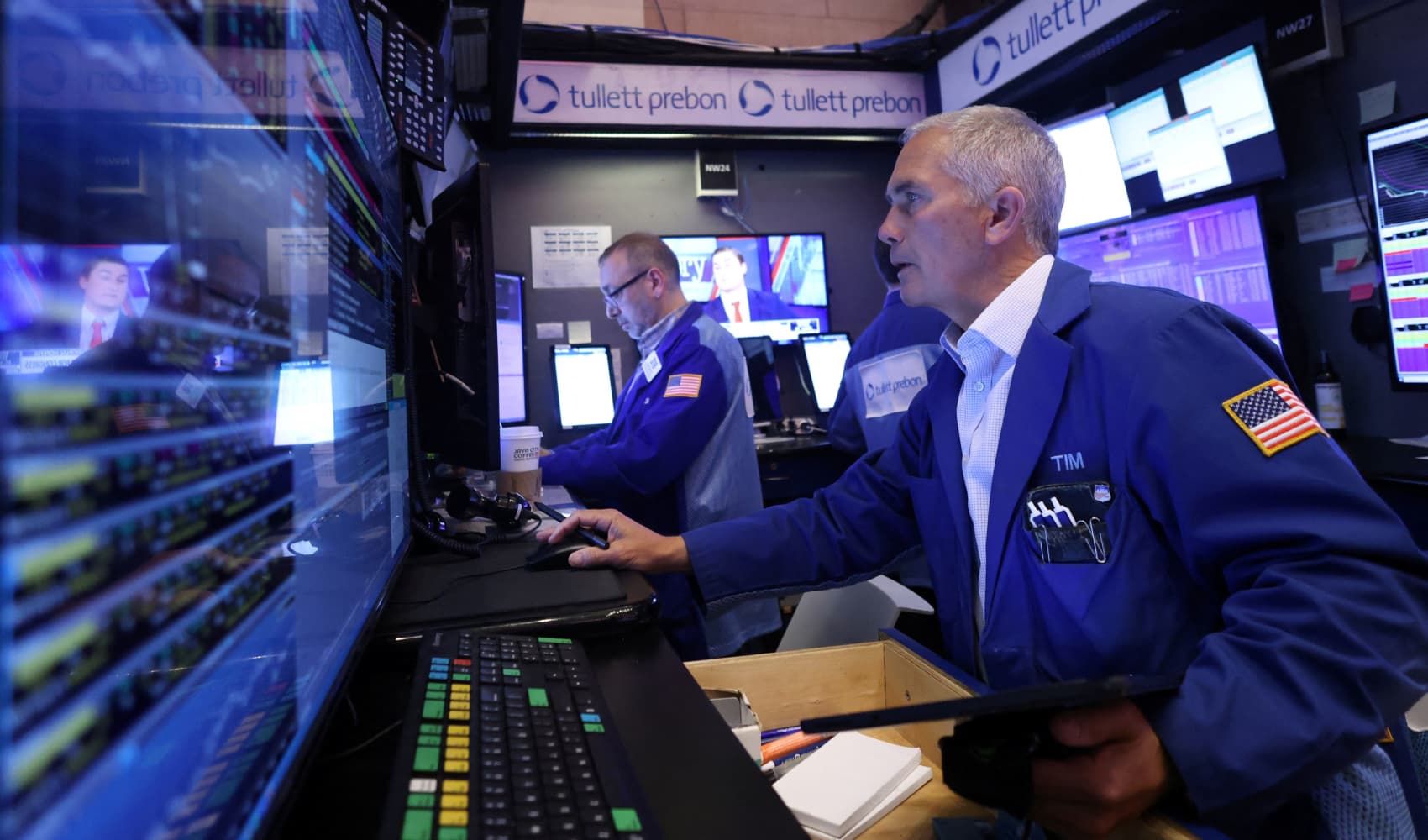
- Democrats hold a substantial early voting lead in the hotly contested Virginia governor's race between Former Democratic Gov. Terry McAuliffe and Republican Glenn Youngkin.
- At least 667,012 Virginians have submitted early ballots for the gubernatorial election taking place on Nov. 2.
- Nearly 55% of early voters so far are likely Democrats, while 30% are likely Republicans.
- Republicans could easily outperform them on Election Day and close that gap.
Democrats hold a substantial early voting lead in the hotly contested Virginia governor's race between former Democratic Gov. Terry McAuliffe and Republican Glenn Youngkin.
But Republicans could close that gap on Election Day in less than a week.
At least 667,012 Virginians have submitted early ballots for the gubernatorial election taking place on Nov. 2, according to the latest data from Democratic data firm TargetSmart. That's more than triple the number of early voters in 2017.
Get Boston local news, weather forecasts, lifestyle and entertainment stories to your inbox. Sign up for NBC Boston’s newsletters.
Nearly 55% of those voters so far are likely Democrats, while 30% are likely Republicans, according to TargetSmart. Voters do not register by party in Virginia but TargetSmart predicts partisanship based on data from previous elections.
While early voting data may suggest that Democrats are in a solid position to prevail, Republicans could outperform them on Election Day in a tight race.
Money Report
"Republicans are probably more likely to vote in person on Election Day than Democrats are," said Stephen Farnsworth, a professor of political science at the University of Mary Washington in Virginia. "All indications are we are looking at a photo-finish election for governor in Virginia."
Both candidates have been scrounging for early votes amid recent polling that shows the race deadlocked. A poll released Tuesday by USA TODAY and Suffolk University, for instance, shows each candidate receiving an identical 45% in support.
McAuliffe and Youngkin have until Saturday to boost early voting turnout among their supporters.
Low early voting turnout among Virginia Republicans is no surprise in the wake of the 2020 presidential election. Former President Donald Trump notoriously slammed mail-in voting last year, falsely claiming that it is rife with voter fraud and disadvantageous to Republicans.
In a departure from Trump, Youngkin has urged his supporters to cast early ballots.
The former Carlyle Group CEO has held rallies outside early polling locations, taken a 10-day cross-state bus tour to encourage early voting and is using text messages and door-knocking to ensure his supporters know how to vote early.
"Youngkin has not repeated the mistakes of former President Trump, who discouraged his supporters from early voting and mail-in voting in 2020," Farnsworth said. "Youngkin has encouraged early voting at every opportunity."
While those efforts may not be paying off, high Republican enthusiasm about voting in the race is likely to make up for their low early voting turnout.
According to a Monmouth University poll released last week, Youngkin's supporters are more excited to vote in the upcoming election by nearly 23 percentage points.
This enthusiasm gap could also result in lower Election Day voting among McAuliffe's supporters and cut the early Democratic lead.
The lack of enthusiasm among Democrats has been exacerbated by President Joe Biden's falling job approval ratings and failure to pass his economic agenda ahead of a self-imposed end-of-the-month deadline to reach a deal.
McAuliffe has called Biden's low ratings a challenge for his campaign, saying that he has to "plow through" since the president is "unpopular" in Virginia.
But McAuliffe still rallied alongside Biden on Tuesday when the president's speech quickly turned into a wide-ranging rebuke of Youngkin and ultimately, Trump.
Karen Hult, a political science professor at Virginia Tech, said turnout and mobilization are still obstacles that Democrats will face on Election Day.
"Mobilizing their base still remain a challenge for Democrats. What the Democrats need to do is to boost their turnout and get people to actually go and cast ballots," Hult said.
Correction: This story has been corrected to reflect that Democratic voters have taken an early lead in the Virginia governor's election.






